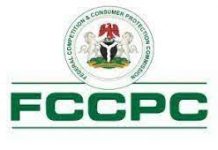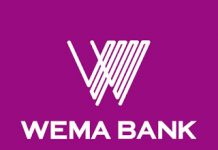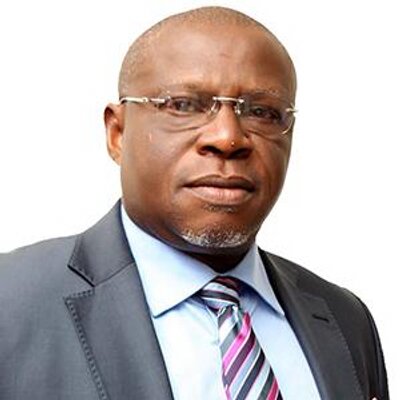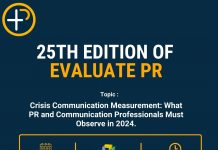:By John E. Ehiguese
Dear Emeka,
Your pretty detailed and incisive piece, which was in essence a general appraisal of the current state of PR practice in Nigeria, made interesting reading. Your points were well articulated, and your positions and perspectives, for the large part, vintage Emeka Oparah – boldly canvassed!
It is understandable that one’s perspective on any issue will inevitably be influenced by one’s position. I run a PR consultancy practice in Nigeria, and as someone ‘in the trenches’ (in a manner of speaking) I certainly know where the shoe pinches and therefore have a different viewpoint on some of the issues.
I too now feel compelled to further interrogate (perhaps even challenge) some of your positions and conclusions, in the hope that at the end of the day we can both provoke a robust conversation that will ultimately enrich the profession of PR in Nigeria.
Let me reiterate, for emphasis, that my own positions will be largely coloured by where I stand in the PR service matrix – as an external consultant, running a practice, which is also a business.
Now let’s talk about some of the issues in Public Relations in Nigeria.
I will begin with your story about your friend whose MD was disappointed that he could only garner a social media mention for his event (even though expeditiously), as opposed to front page coverage in major newspapers. I’m sure many of my colleagues on the consultancy side can relate to that story.
True, the MD is clearly of the ‘analogue’ era, and you can describe him as ‘ignorant’ all you want, but if you were a consultant working for such an ‘old school’ client, you would do well to keep in mind that he is the Client! Which means that he is paying the bills, and if you want to keep that account, you better know when to listen and when to preach. After all, we all know the saying about ‘he who pays the piper…’
Now, some people are free to pontificate about how the external consultant should be the expert, advising the stupid client on what is best for his reputation and business, and on how to spend his money. After all, isn’t that why he is paying you?
But as any smart consultant knows, there is oftentimes a struggle between what the client wants and what you think he needs. It is a struggle you don’t always win.
And before anybody brands me a spineless consultant who is not sure of himself and his professional expertise, let me remind you that my consultancy practice is also a business and I operate it in the real world – the world of ever-dwindling revenues, perennial budget costs, upwardly mobile salary and other bills, taxes – oh that! – diesel costs, ethically and intellectually challenged employees, impossible, and sometimes unreasonable, clients, punishing finance costs (that is when you can find it) …the list goes on and on!
In my early days in the consultancy business, we handled a project for a large corporation in the Oil & Gas sector whose head of Corporate Comms literally abused me and branded me an ‘incompetent’ PR consultant (she barely fell short of calling me a fraud), simply because we did not get front page newspaper mentions (for free!) of her company’s press conference which featured her MD and which was in her estimation the greatest thing that ever happened to Nigerian business! I admit though, that I was pretty naïve and inexperienced at the time. If I knew then what I know now I certainly would have handled that situation differently.
Identity Crises:


Yes, PR currently appears to suffer an identity crisis, but that is an evolutionary trend, and not necessarily negative. And it stems in the large part from the new paradigm of content-driven PR. Whereas in the past PR was media-driven, that is no longer the case. Today, content (especially story telling) is king!
Now, once content has been designed and created, it can then be propagated through different elements and channels: media relations, events, experiential (activations), video, photography, infographics, digital, social media, word-of-mouth, etc.
Indeed one of the key measures of the profundity and (potential) impact of PR content is how amenable it is to expression across as many channels as possible, without losing its core essence and message. That is why today’s large PR consultancy tends to be home to a broad and diverse range of competences in-house. And by extension, today’s PR practitioner is a veritable ‘Jack of all trades’. Come on, some PR agencies are now recruiting psychologists!
Clearly therefore, there is a progressive re-convergence of skills and competences under the ‘new’ PR, and it is this dynamic that appears like a crisis of identity. In time, it will all crystallize, and PR will take its rightful place as the lead function in the marketing communication mix. I must add that this trend is already taking root on the global stage. For Nigeria, it’s just a matter of time.
Digital and Social Media:
Which brings me to the issue of how social media has completely disrupted the traditional media experience and given birth to new information consumption paradigms and media forms that are themselves still evolving and perennially fractionalizing. I totally agree with you that given the pervasiveness and ubiquity of social media, driven largely by the twin factors of rapidly rising rates of internet penetration and a predominantly youthful population, digital and social media have become an indispensable part of any ‘purposive’ (to use your own words) communication project today.But we all know that old habits die hard, and a good number of the older generation, some of whom have the ultimate responsibility to sign off on the PR budgets appear slow in their uptake of social media, and so it must be ‘sold’ to them with tact and patience – plus a healthy dose of facts and figures too! I have encountered quite a few clients who have not yet completely embraced the ‘social media craze’, and I know better than to just write them off as ignorant ‘old school’ fools. They are client – remember?
With the on-going proliferation of Digital Marketing agencies, some clients have even gone as far as delineating traditional and digital media functions and sharing them between so-called ‘specialist’ agencies. My candid personal opinion is that such a practice is disingenuous – in this age and time, PR delivers best when it is integrated.
Truth is, good old media relations still has its place in the hearts of many clients, and as an external consultant you write off such clients completely at your own peril.
PR As A Management Function:
It is clearly ideal that PR be treated as a management function, and that it should have a place in the C-Suite of the corporate architecture, especially in large corporations. You are especially lucky to have had such an experience in your career. You’re obviously acquitting yourself creditably, and we of the Nigerian PR community are proud of you.
But then several of your contemporaries have not been that fortunate. Just yesterday I heard (yet another) story of some very bright young chap who was forced to leave a bank because he had risen to the position pf DGM, and would not be allowed to progress further except he was willing to cross over from Corporate Comms to Operations. He opted out instead.
We can only hope that the situation improves, and I believe that it will, as understanding of the strategic role of PR becomes increasingly understood and embraced by Nigerian corporations.
The Brown Envelope:
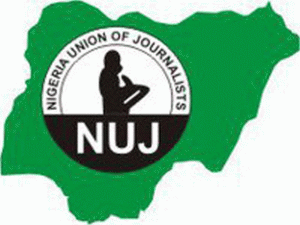

I will never support that news be paid for. If the motive is to induce the reporter, then it is clearly unethical. But if on the other hand, it is a monetization of the reporter’s transportation cost to a client event, especially in our environment where the public transportation system is at best chaotic, then my professional conscience can live with it.
And if you must know, this practice is not peculiar to Nigeria. In China, PR agencies are expected to provide transportation for reporters invited to client events, and where such an arrangement is not practicable, such transportation is monetized. In Saudi Arabia a couple of large corporations have been known to present Rolex watches to reporters invited to press conferences.
And by the way, who is complaining? Is it in-house ‘corporate governance’ champions who publicly denounce the ‘brown envelope’ but yet don’t have any qualms shelling out hundreds of thousands of Naira to ‘buy’ front page photo coverage for their CEOs (who, by the way, provide the cash and then conveniently look the other way)?
Or is it the sanctimonious Corporate Communications executive who always insists on being ‘sorted’ by suppliers, or on sharing out of the monthly retainer paid to his PR agency? Or who organizes phony pitches in order to justify giving business to his (otherwise ill-qualified) friends and cronies? Which is the lesser (or greater) sin? And who will, biblically speaking, ‘cast the first stone’?
Certainly not the poorly paid PR consultant who is doing all his best to please his client to that he can keep the business, or the overworked and under-paid reporter whom we all expect to be at our beck and call whenever we need him.
One final word on this: You say we should never pay for news, and I completely agree. Please look me straight in the eye and tell me that the organization you work for does not pay to have news of its major events broadcast in the news bulletins of the leading television networks in Nigeria.
I understand that this aberrant Nigerian practice is euphemistically referred to as ‘LTP’ (Let Them Pay). Rings a bell? Oh well, the huge sums of money involved (often over one million Naira per spot) can certainly not fit into a brown envelope – it’s most probably wired electronically to the TV network. I rest my case.
Let’s just say that on this matter I personally choose not to play the ostrich, or to pretend that I live in planet Mars. Enough said about that.
The Nigerian PR Report:


I agree with you that ‘Ayeni The Great’ of Black House Media did a great job (pun intended) with his recently published Nigerian PR Report. I must make it clear though, that his was not exactly the first such report.
PRCAN under the leadership of ex-President Chido Nwakanma, conducted a survey and shared the very first Nigerian PR report with our members in 2014. The only difference is that the PRCAN report was not ‘published’ publicly. But I’m sure Ayeni himself would readily concede that he actually built on the PRCAN report of 2014. And that was the major reason why PRCAN agreed to support his project.
Whatever we might want to speculate about his true motives, and whatever misgivings we may have about the overall quality of the work, we cannot take away the fact that he saw a gap and did his best to fill it. It is a bold effort, that should be commended and built upon, for the benefit of Nigerian PR in general.
The Future of Nigerian PR:
The Holmes Report of 2014 reported that PR grew globally by about 13% in that year. We do not have the statistics for Nigeria (obviously!), but I would not be surprised to find that PR is also growing here. I agree with you that it is imperative for us to begin to gather, index and process data on Nigerian PR, so that we can measure the performance of the industry, and therefore be able to take advantage of trends and insights elicited, and to plan for the future.
There’s a lot to be done, especially in the areas of training (capacity building) and standards of practice. There is clearly the need for a PR campaign for Nigerian PR. And we the practitioners must be at the forefront of this project. We must begin to look at the big picture and work collectively towards building a profession that we can all be proud of, and that can enable us to command respectable fees for our services.
I admit that this is easier said than done. The challenges of survival, especially for businesses in this environment, are daunting. But we must trudge on, each doing and contributing his bit. As our economy stabilizes and the volume of Foreign Direct Investment ramps up, I foresee an imminent regime of Mergers & Acquisitions in the Nigerian PR consultancy business, such that agencies can build scale and be able to pool together the resources needed to service big multinational clients and brands.
As in all things Nigerian, we may start slowly, but we ultimately get there – and in style! That’s the Nigerian way, and you have to be one to understand it!
Postscript: The problems with Nigerian PR are like the problems with Nigeria – complex and multi-faceted. There is a cacophony of talk and analyses about these problems, often to the point of analysis-paralysis. What we need is less of talkers and more of doers. Let us begin with what each one of us can do within our own spheres of influence, to improve the PR profession.
To paraphrase the lyrics in one of the songs of the immortal Michael Jackson: “if we truly want change, it must begin with the man in the mirror…”. But then I also concede that talking is a good starting point.
So let’s talk some more about the issues in PR in Nigeria.
John Ehiguese is the Group CEO of Mediacraft Associates, and President of the Public Relations Consultants Association of Nigeria (PRCAN).
CREDIT: Brandish,com,ng















